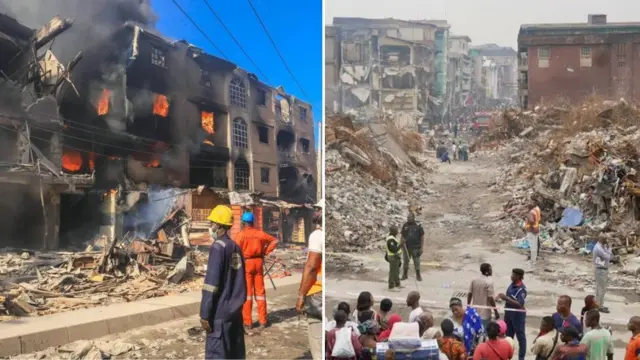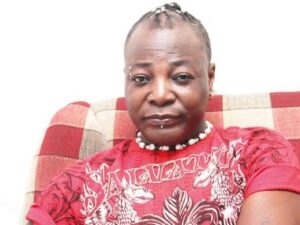In recent years, the significance of home insurance has grown tremendously across the globe, and Nigeria is no exception. As natural disasters and unforeseen accidents continue to escalate, the need for protection against the loss of one’s most valuable asset—a home—has become increasingly critical. The Federal Government of Nigeria has reported property losses exceeding 1 trillion Naira due to fire incidents alone. This staggering figure does not include the destruction caused by flooding, which remains a perennial issue in many parts of the country.
Cities like Lagos, Benue, Onitsha, Delta, and several others face an ever-present threat from floods. Thousands of Nigerians lose their homes and properties annually to these disasters. Without adequate preparation and financial safety nets, such losses can plunge victims into depression, homelessness, and crippling debt. Recent examples—such as a fire outbreak in Gwarimpa, Abuja, and a radio station burned down in Aba, both occurring within the same month—highlight the devastating impact of these events. Even prominent individuals like the comedian AY are not immune, as he recently lost his home to fire. These cases underscore the urgent need to promote home insurance across Nigeria.
The Challenges Homeowners Face
Homeowners in Nigeria face a myriad of risks, ranging from environmental factors to infrastructure failures and even human error. Flooding, for example, has become an annual disaster affecting millions. Poor urban planning, inadequate drainage systems, and rising sea levels have combined to make cities like Lagos and Benin highly vulnerable. In 2022, widespread flooding displaced over 1.4 million Nigerians, destroyed more than 200,000 homes, and caused economic losses worth billions of Naira.
Similarly, fire outbreaks have wreaked havoc on homes, markets, and businesses. Many of these fires are caused by electrical faults, gas leaks, or human negligence. The cost of rebuilding or replacing a home lost to fire or flood is often beyond the reach of the average Nigerian family, leaving them destitute and with no means of recovery. For many, the psychological toll of such losses is as devastating as the financial impact. Depression, anxiety, and even suicide have been linked to the despair of losing one’s home.
The Role of Home Insurance
Home insurance provides a critical safety net for homeowners by offering financial protection against disasters and unforeseen events. With a good home insurance policy, homeowners can receive compensation for damages, enabling them to rebuild their lives without bearing the full financial burden. Insurance coverage typically includes protection against fire, theft, vandalism, natural disasters, and sometimes even liability if someone gets injured on the property.
In the context of Nigeria, where rebuilding after a disaster can be prohibitively expensive, home insurance can make the difference between recovery and ruin. The value of home insurance lies not only in compensating for material losses but also in providing peace of mind. Knowing that your home and assets are protected allows families to focus on rebuilding rather than being overwhelmed by despair.
Why Home Insurance Must Be Promoted
Despite its importance, home insurance remains grossly underutilized in Nigeria. Several factors contribute to this, including a lack of awareness, misconceptions about insurance, and limited access to affordable insurance products. Many Nigerians view insurance as an unnecessary expense or do not trust insurance providers to fulfill their promises.
However, as disasters become more frequent and severe, it is crucial to change this narrative. Promoting home insurance involves not just creating awareness but also addressing the barriers that prevent people from embracing it.
Here are key reasons why home insurance should be actively promoted in Nigeria:
• Rising Incidence of Disasters: As highlighted earlier, floods and fires are becoming more common, destroying thousands of homes every year. Home insurance provides a lifeline in such situations, ensuring that victims can recover without losing everything.
• Financial Protection: The cost of replacing or repairing a home is often beyond the reach of most Nigerians, especially in an economy where inflation and unemployment are high. Home insurance offers an affordable way to manage these costs.
• Mental Health and Well-Being: Losing a home can lead to severe psychological distress, including depression and anxiety. Having insurance can mitigate these effects by providing a sense of security and hope for recovery.
• Encouraging Better Planning: Promoting home insurance can also lead to broader societal benefits, such as improved urban planning and disaster preparedness. When people understand the risks and the need for protection, they are more likely to demand better infrastructure and governance.
• Economic Stability: On a macroeconomic level, widespread adoption of home insurance can contribute to greater economic stability. It reduces the financial strain on individuals, communities, and the government, allowing resources to be allocated more efficiently.
Overcoming Barriers to Adoption
To promote home insurance effectively in Nigeria, it is essential to address the challenges that have hindered its widespread adoption.
• Raising Awareness: Many Nigerians are simply unaware of the benefits of home insurance or how it works. Public awareness campaigns, community outreach programs, and partnerships with local leaders can help educate people about the importance of insuring their homes.
• Building Trust: The insurance industry in Nigeria needs to work on rebuilding trust with the public. Transparent policies, prompt claims processing, and effective customer service are essential to convincing people that insurance is a reliable safety net.
• Making Insurance Affordable: For many Nigerians, the cost of insurance is a significant barrier. Insurance providers should develop flexible payment plans and affordable policies tailored to the needs of low- and middle-income households.
• Leveraging Technology: Technology can play a crucial role in making insurance more accessible. Mobile platforms, online portals, and digital payment systems can simplify the process of purchasing and managing insurance policies.
• Incentives and Regulation: The government can encourage the adoption of home insurance through incentives such as tax breaks or subsidies. At the same time, regulatory frameworks should be strengthened to ensure that insurance providers meet their obligations and operate transparently.
A Call to Action
The recent spate of disasters in Nigeria, including the fire outbreaks in Gwarimpa and Aba, and the floods that have devastated entire communities, serve as a stark reminder of the risks homeowners face. Promoting home insurance is not just about protecting individual properties—it is about building a resilient society where people can recover from setbacks and move forward with confidence.
Policymakers, insurance companies, and community leaders all have a role to play in driving this change. The government must prioritize public education and create an enabling environment for the insurance industry to thrive. Insurance providers must develop innovative and affordable products that meet the needs of diverse customers. Communities and civil society organizations must work together to raise awareness and encourage people to take proactive steps to protect their homes.
Conclusion
Home insurance is not a luxury; it is a necessity. In a country as prone to disasters as Nigeria, the importance of having a safety net cannot be overstated. The losses caused by fires, floods, and other calamities are not just financial—they are deeply personal, affecting lives, families, and futures.
By promoting home insurance, Nigeria can ensure that homeowners are better prepared to face these challenges. It is time to shift the narrative and make home insurance a cornerstone of disaster resilience and financial stability in the country. With the right policies, education, and collaboration, we can build a safer and more secure future for all Nigerians.





